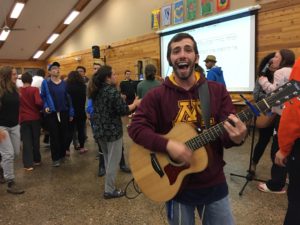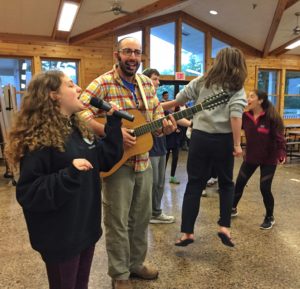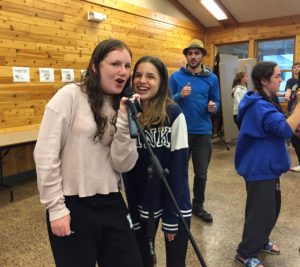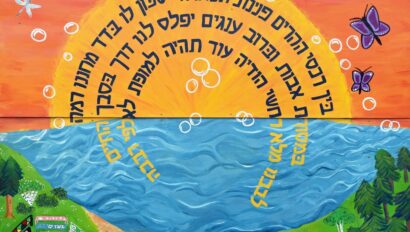by Sam Blustin, Rosh Shira Every Saturday evening, as Shabbat is coming to a close, 50-75 campers and staff members pack together in one of the dining halls for Seudat Shlisheet singing. These slow, melodic songs are our petition to the Shabbos Queen for her to remain with us just a bit longer. Led by Rosh T’fillah Jeremy Fineberg, we create holy space for over an hour, setting the soundtrack for the rest of camp as the melodies waft out of the chadar ochel to those playing on the kikar.
A few days a week, Hadar, our Israeli Shira staff member, brings music to the Ivrit (Hebrew) classes. Sometimes she brings basic songs, like children’s songs about animals, which serve as a fun and different way to learn animal names in Hebrew. Other times, it’s simple Israeli songs that she uses to teach both about Hebrew and Israeli culture.
Both stories illustrate one of our main goals at camp this summer: the diffusion of music throughout camp. Whether it’s empowering people to create meaningful musical moments or using our resources in shira to support other areas of camp, the goal is to show that music can be a powerful and fun vehicle for learning.
This summer we’ve partnered with the Tikvah text class, going in on Fridays before Shabbat to teach and sing. We’re acting in a support role for the directors of the Hebrew musicals, sitting down with leads and doing some vocal coaching. We’ve just started offering musical yishunim (lights out programming), allowing us to get to know campers better. Each eidah has musical t’fillot once per week, which brings additional energy and melody to prayer.
So why is it important for music to be so present in camp? First of all, songs sessions following meals give campers the opportunity to sing and dance with their friends in a supportive environment. At other times, music can help set the mood, as in “it’s time to come together and pray now.” Communal singing creates opportunities for leadership, helping campers build self-confidence. It’s also an interesting way to learn text, discussing why composers might have written their pieces the way they did. It can be a tool to teach Hebrew in a fun and engaging way. And finally, although this list is not exhaustive, it serves as an entry way for campers to connect to Israeli and American Jewish culture. All these things together make shira an incredibly powerful way to connect campers and staff to Judaism past and present.







